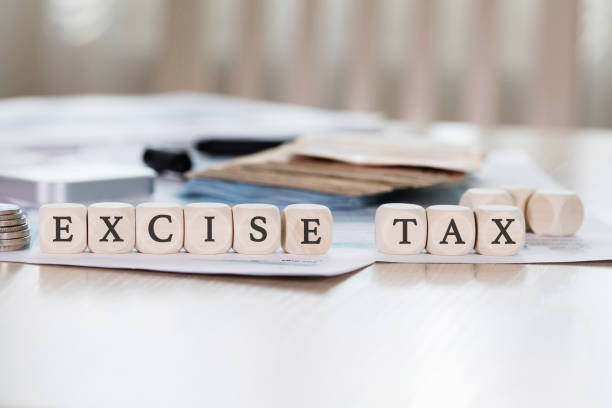ECONOMIC REPORT: THE IMPACT OF EXCISE DUTIES SUSPENSION ON THE TELECOMMUNICATION SECTOR
To address this concern, the previous administration, led by President Muhammadu Buhari, introduced a reform through the Finance Act in 2022. This act, approved by the President, implemented the 2022 Fiscal Policy Measures and Tariffs Amendments (FPM 2022) with effect from 1 April 2022. By replacing the previous FPM 2021, the FPM 2022 outlines the following measures and changes:
- ECOWAS Common External Tariff (CET) Supplementary Protection Measures (SPM): These measures allow ECOWAS countries to conditionally adjust the tariffs on certain imports or exports in line with national interests. The 2022 SPM introduces Import Adjusted Tax (IAT) on 172 tariff lines, and prohibits certain goods originating from non-ECOWAS member states.
- Excise duty rates on non-alcoholic beverages and telecommunication services following the recent tax law amendments, and updated excise duties on alcoholic beverages, cigarettes, and tobacco products. A grace period till 1 June 2022 was given for the implementation of the new excise duty rates.
TOBACCO
The Fiscal Policy Measures (FPM) 2022 increased the ad-valorem excise rate on tobacco to 30%, in addition to a specific amount per stick which would graduate on a yearly basis from 2022 – 2024. This follows a similar structure introduced in 2018. Tobacco and cigarettes containing tobacco were also removed from the Import Adjustment Tax
| Previously | FPM 2022 | ||||
| 2018 | 2019 | 2020 | 2021 | 2022 | 2023 |
| 20% + N1 | 20% + N2 | 20% + N2.90 | 30% + N4.2 | 30% + N4.7 | 30% + N5.2 |
Source: PWC-Nigeria, Futureview Research
EXCISE DUTIES ON NON-ALCOHOLIC BEVERAGES
The Finance Act (FA) 2021 introduced a framework for excise duties on “non-alcoholic, carbonated and sweetened beverages”. The FPM 2022 specified the rate at N10 per litre, for non-alcoholic beverages, fruit juices, and energy drinks, and sets out the CET codes for the affected items.
Apart from raising revenue, the federal government has communicated that the “sugar tax” is aimed at reducing sugar consumption and promoting the health of Nigerians.
Alcoholic beverages (beers, stouts, spirits and wine) The FPM 2022 also increased excise duties on beers, stouts, wines, and spirits. All items have specific amounts applicable per litre and which graduate on a yearly basis from 2022 – 2024. Beer and stouts also attract 20% excise duties over the period, in addition to the flat amounts. Alcoholic beverages were also taken off the import adjustment tax list in 2021.

TELECOMMUNICATION SERVICES
The Fiscal Policy Measures (FPM) 2022 introduced excise duties of 5% on postpaid and prepaid telecommunication services, further to the recent amendment of the Customs and Excise Tariff, Etc.
(Consolidation) Act via the Finance Act 2020.
Other Points from the FPM 2022.
- Goods from outside the ECOWAS customs union can now be imported into a country and re-exported to other countries. Exporters are to obtain approval from the Federal Ministry of Finance, Budget and National Planning (FMFBNP) and pay an export surcharge of 2.5% on the present value of the goods.
- Importers who had entered into an irrevocable Trade Agreement and opened a Form M prior to 1 April 2022 will continue to operate under the previous import duty regime for 90 days commencing from 1 April 2022. Agreements entered after 1 April will operate under the new regime.
- The Fiscal Policy Measures (FPM) 2022 also extends the approved list of critical medical supplies that are exempted from import duty and VAT till 31 December 2022. This exemption is subject to receiving a letter of support from the Federal Ministry of Health, and an Import Duty Exemption Certificate (IDEC) from the FMFBNP through the IDEC Portal.
- Containers of iron or steel for compressed or liquefied gas have been removed from the revised import prohibition list.
NEW FISCAL POLICY REGIME
Under the new administration of President Bola Ahmed Tinubu, Nigeria has witnessed significant policy changes within the first 40 days in office. These changes include the complete removal of fuel subsidy, the unification of the foreign exchange (FX) system, the enactment of the electric bill into law, and various other reforms. However, these policy actions have led to challenges for ordinary citizens, with rising inflation rates and increased costs of investment. The average Nigerian is facing ongoing struggles as the economy adjusts to these changes.
Hence this decision; the President on Thursday, 6th of July, 2023, signed four (4) executive orders in response to various concerns raised by stakeholders. The Special Adviser on Special Duties, Communications and Strategy disclosed this while briefing the state house media in the Presidential Villa.
According to him, the Executive Orders are also designed to address the concerns of manufacturers and other stakeholders regarding recent tax changes in the country.
The Executive Orders highlighted by Mr. Dele Alake include the following:
- The Finance Act Order, 2023, defers the commencement date of the changes contained in the Act from May 23, 2023, to September 1, 2023.
- The Customs Excise Tariff Amendment Order, 2023, shifts the commencement date of tax changes from March 27, 2023, to August 1, 2023.
- Suspension of the 5% Excise Tax on telecommunication services and excise duty on locally produced products.
- Suspension of the newly introduced Green Tax on Single Use Plastics and the Import Tax Adjustment levy on certain vehicles.
HOW WOULD THE EXCISE DUTIES SUSPENSION IMPACT THE TELECOM SECTOR?
The removal of 5% excise duties in the telecommunication sector is likely to have a positive impact on both the sector itself and the final consumer.
For the telecommunication sector, the elimination of these excise duties can lead to several benefits. Firstly, it will boost the revenue of the companies in the sector as consumers will get more value on their money when making voice calls and using internet data. This will result in higher profits and overall growth for these companies.
Secondly, it will contribute to increased profitability for telecommunication companies. With reduced costs resulting from the removal of excise duties, companies may have more resources available to invest in infrastructure development, network expansion, and technological advancements. This can result in improved services, enhanced network coverage, and better customer experiences.
Additionally, the removal of excise duties can foster competition within the telecommunication sector. With lower tax burdens, companies may have more flexibility to invest in marketing, promotions, and service enhancements. This can lead to increased competition among providers, driving them to offer better quality services, more attractive pricing, and innovative offerings to attract and retain customers.
For the final consumer, the removal of 5% excise duties can bring about several positive outcomes. Firstly, it may lead to reduced prices for telecommunication services. With lower tax burdens, telecommunication companies may pass on cost savings to consumers, resulting in more affordable service plans and packages. This can make telecommunication services more accessible to a broader range of consumers, including those in lower income brackets.
Furthermore, the improved competition among telecommunication providers, driven by the removal of excise duties, can lead to better service quality, increased coverage, and improved customer support. Consumers may benefit from improved network reliability, faster internet speeds, and enhanced customer service experiences.
Overall, the removal of 5% excise duties in the telecommunication sector is expected to have a positive impact on both the sector itself and the final consumers. It can contribute to increased profitability, investment in infrastructure, and competition among providers, leading to improved services, affordability, and customer experiences for telecommunication consumers.






